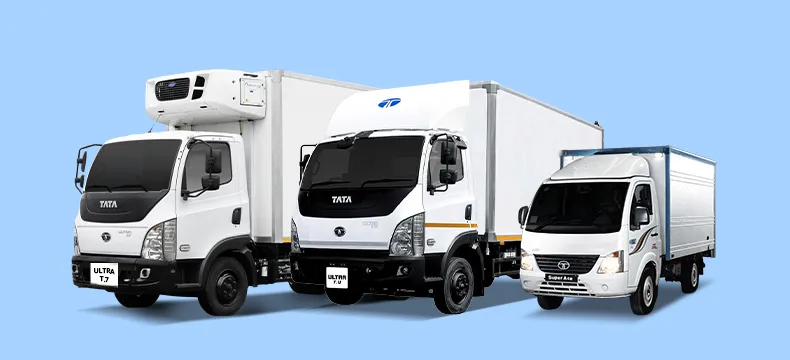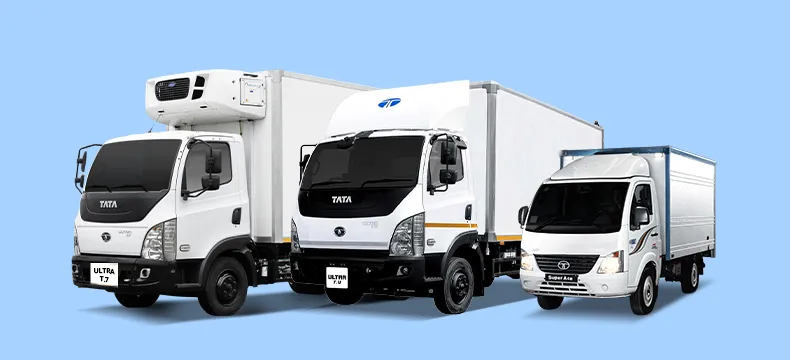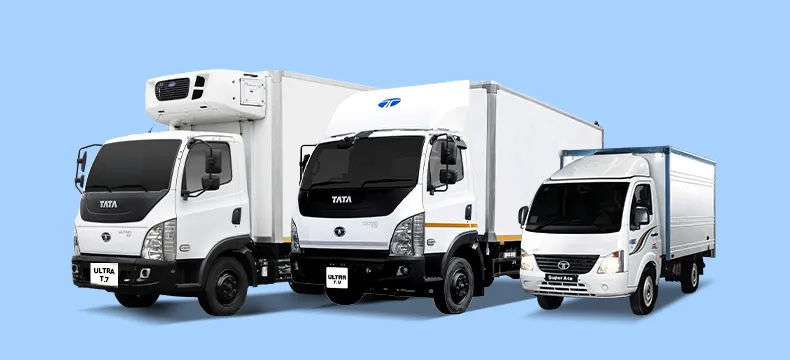1 Sep 2025

Light Commercial Vehicles: Navigating Through Urban Traffic
- Tata Motors
- 24 Dec 2024
- Commercial Vehicle
Introduction
As the cities of Vietnam continue to grow and flourish, the need for efficient transportation solutions becomes paramount. In the heart of urban traffic jams and bustling streets, light commercial vehicles (LCVs) shine as the unsung logistics heroes, offering a lifeline to businesses and individuals alike. In this blog, we will explore the significance of light commercial vehicles in navigating through Vietnam's urban traffic, delving into their various features and advantages and how Tata Motors, a renowned automaker, contributes to the LCV landscape in the country.
Benefits of Light Commercial Vehicles in Vietnam
- Efficiency in Urban Traffic:
Navigating through the often congested streets of Vietnamese cities can be challenging. LCVs, with their compact size and maneuverability, excel in such conditions. They can swiftly transport goods and provide services, reducing delivery times and improving customer satisfaction.
- Cost-Effective Transportation:
LCVs are known for their cost-effectiveness. Compared to larger vehicles, they offer lower operational costs, including fuel consumption and maintenance expenses. For businesses looking to optimize their budgets, LCVs present a compelling solution.
- Versatility:
LCVs come in various forms, including cargo vans, delivery trucks, and pickups. This versatility allows them to cater to various industries and applications, from e-commerce deliveries to construction and small-scale logistics.
- Customization Options:
Many LCV manufacturers, including Tata Motors, offer customization options. Businesses can tailor these vehicles to their specific needs, whether it's refrigeration for food deliveries or shelving for mobile workshops.
Opportunities for Light Commercial Vehicles in Vietnam
- Last-Mile Delivery Services:
With the booming e-commerce industry in Vietnam, the demand for last-mile delivery services has skyrocketed. LCVs perfectly suit this task, ensuring that products reach consumers quickly and efficiently.
- Small-Scale Logistics:
Vietnam's expanding manufacturing and trade sectors rely on efficient logistics and distribution networks. LCVs provide an ideal solution for small to medium-sized logistics companies, offering the flexibility and affordability needed to thrive in a competitive market.
- Local Business Support:
LCVs offer local businesses a means to expand their reach and cater to a broader customer base. Whether transporting goods to local markets or providing on-site services, LCVs empower small businesses to grow.
- Infrastructure Development:
The increased demand for LCVs has spurred infrastructure development, including service centers, spare parts suppliers, and maintenance facilities. This growth presents investment opportunities for entrepreneurs and businesses.
- Rural Connectivity:
LCVs also play a crucial role in connecting rural areas with urban centers. They facilitate the transportation of agricultural products and other goods, fostering economic growth in previously underserved regions.
The Significance of Light Commercial Vehicles
Efficiency on Wheels
Light commercial vehicles, often abbreviated as LCVs, are the workhorses of urban transportation. These versatile vehicles bridge the gap between small cars and heavy-duty trucks, offering a range of payloads and sizes to cater to diverse needs. From delivering parcels and perishables to serving as mobile workshops, LCVs are instrumental in keeping businesses running smoothly in the labyrinthine streets of Vietnam's cities.
Maneuverability in Tight Spaces
One of the primary advantages of LCVs in urban traffic is their maneuverability. These vehicles are designed to navigate through congested streets and narrow alleyways, ensuring deliveries can reach their destinations swiftly and efficiently in a city where every inch counts. LCVs are the key to unlocking accessibility.
Exploring Light Commercial Vehicles
Types of LCVs
Light commercial vehicles come in various forms tailored to specific tasks. These include delivery vans, cargo vans, pickup trucks, and more. The choice of an LCV depends on the nature of the business and the type of cargo or services it intends to provide.
Key Features
LCVs boast several key features that make them suitable for urban traffic:
- Compact Size: Their smaller footprint allows them to easily navigate crowded streets and tight parking spaces.
- Payload Capacity: Despite their size, LCVs can carry substantial payloads, ensuring efficient delivery and transport.
- Fuel Efficiency: Modern LCVs are designed to be fuel-efficient, reducing operational costs over the long run.
- Customization: Many LCVs offer customization options, allowing businesses to tailor them to their needs.
Conclusion
In the hustle and bustle of Vietnam's urban landscape, light commercial vehicles emerge as the backbone of efficient transportation. Their compact size and maneuverability make them indispensable for businesses and individuals alike.
Tata Motors plays a pivotal role in fulfilling the transportation needs of Vietnam's bustling cities. As the demand for urban logistics rises, LCVs will remain steadfast companions, navigating through the chaos to deliver efficiency and convenience to all corners of Vietnam.
- Tags
Latest Blogs

















